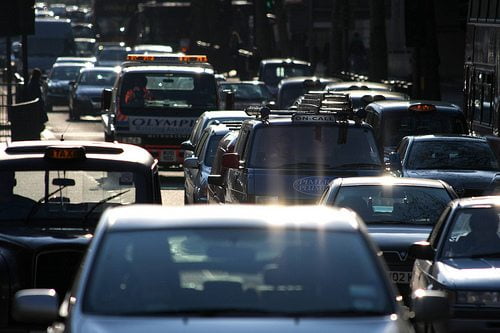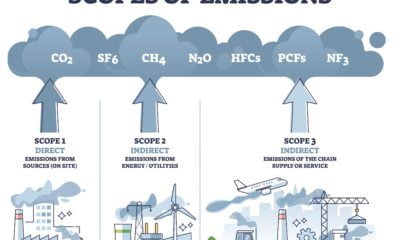

News
EU votes for emissions cap for new cars to save ‘15m tonnes of CO2’
The European parliament has voted in favour of the world’s toughest carbon dioxide emission standards for new cars, albeit with some concessions as a result of German lobbying.
The targets were approved by a vote of 499 in favour, with 107 against and 9 abstentions, on Tuesday.
They mean that all new cars sold in the EU must on average emit no more than 95 grams of carbon dioxide per kilometre (g/km). The current limit is 130 g/km.
Automakers that fail to meet the target will be forced to pay a per-car fine of €95 (£78) a g/km for every extra gram of carbon emitted.
The European commission had proposed the rules should apply from 2020, but after prolonged negotiations it was decided that a “phase in” period of one year will be allowed.
This will mean that only 95% of new cars need to meet the 95 g/km target in 2020. This concession was achieved after Germany lobbied for a more relaxed target, on behalf of its leading auto manufacturers.
“This vote means that Europe will continue to be at the cutting edge in reducing CO2 emissions from cars, as the 95g/km target represents a saving of 15m tonnes of CO2 emissions per year. However, the cost of innovation has to be socially acceptable and economically feasible, both for consumers and manufacturers,” said German MEP Thomas Ulmer.
EU climate commissioner Connie Hedegaard said the weakened target still “maintains ambition”, adding that the commission will soon begin work on “ideas for a post-2020 target“.
However, some campaigners have criticised the parliament’s willingness to bend to the will of the automotive industry.
“This one-year delay to the car emissions law was an unnecessary weakening to please luxury German car makers“, Greg Archer of Transport & Environment, a green campaign group in Brussels, told the Wall Street Journal.
“This is a smart climate law applying to all vehicles sold in the EU, irrespective of where they are built. Makers of larger, more polluting vehicles are given higher targets, so the rules are fair to all carmakers.”
The reduction of transport emissions is not just necessary for the fight to curb climate change, but possibly also for the safeguarding of human health.
Recent studies have linked air pollution from traffic exhaust fumes to lung cancer and heart failure, with some researchers estimating that such air pollution can be dangerous even at levels said to be safe by the EU.
EU governments must still approve the targets before they come into force, though no further objections are expected.
Further reading:
Fuel-efficient cars driving automotive market’s growth
60mph speed limit proposed for M1 section to reduce traffic pollution
New European clean air plan seeks to mitigate cost of pollution


 Environment12 months ago
Environment12 months agoAre Polymer Banknotes: an Eco-Friendly Trend or a Groundswell?

 Features11 months ago
Features11 months agoEco-Friendly Cryptocurrencies: Sustainable Investment Choices

 Features12 months ago
Features12 months agoEco-Friendly Crypto Traders Must Find the Right Exchange

 Energy11 months ago
Energy11 months agoThe Growing Role of Solar Panels in Ireland’s Energy Future





























